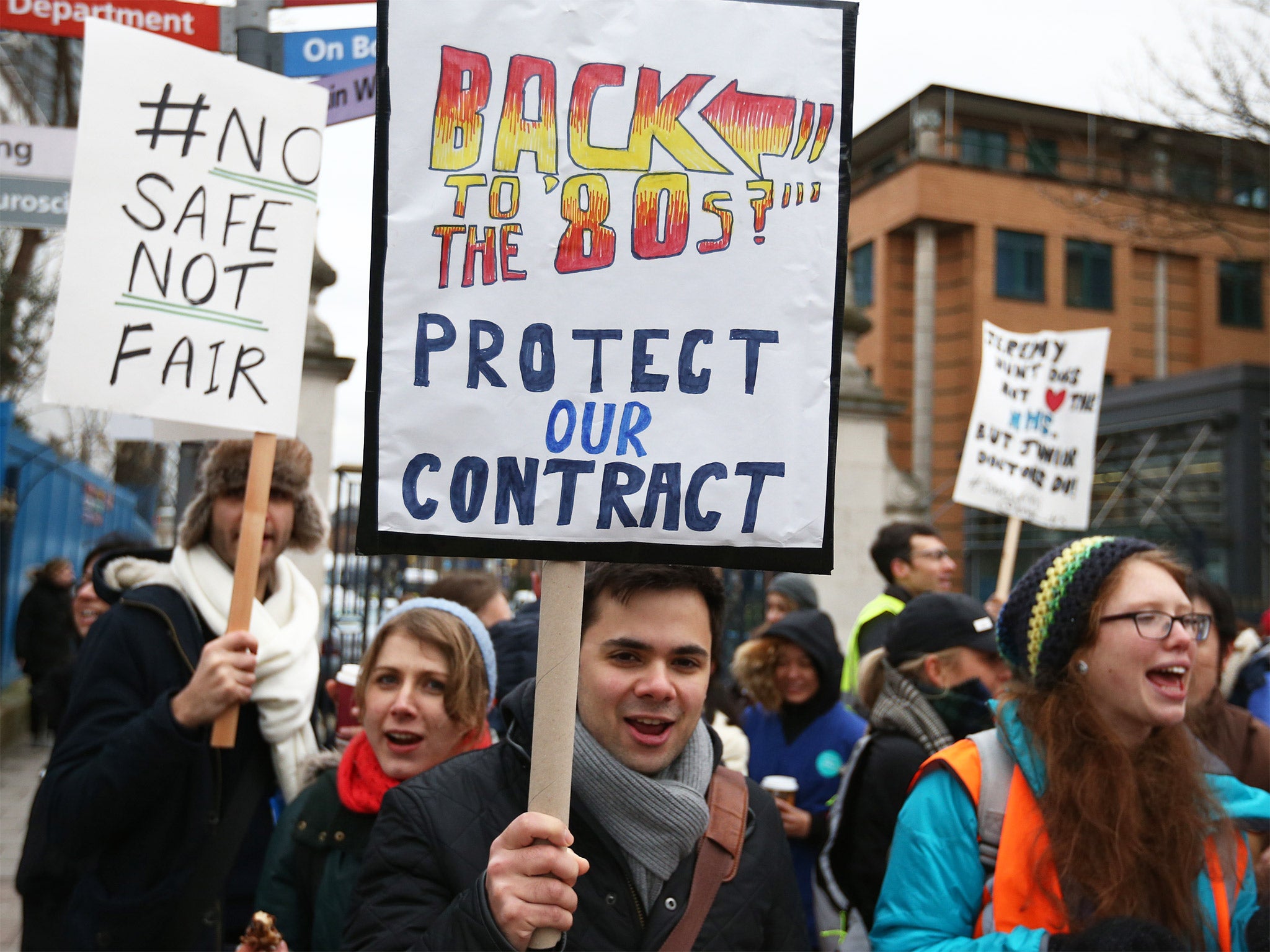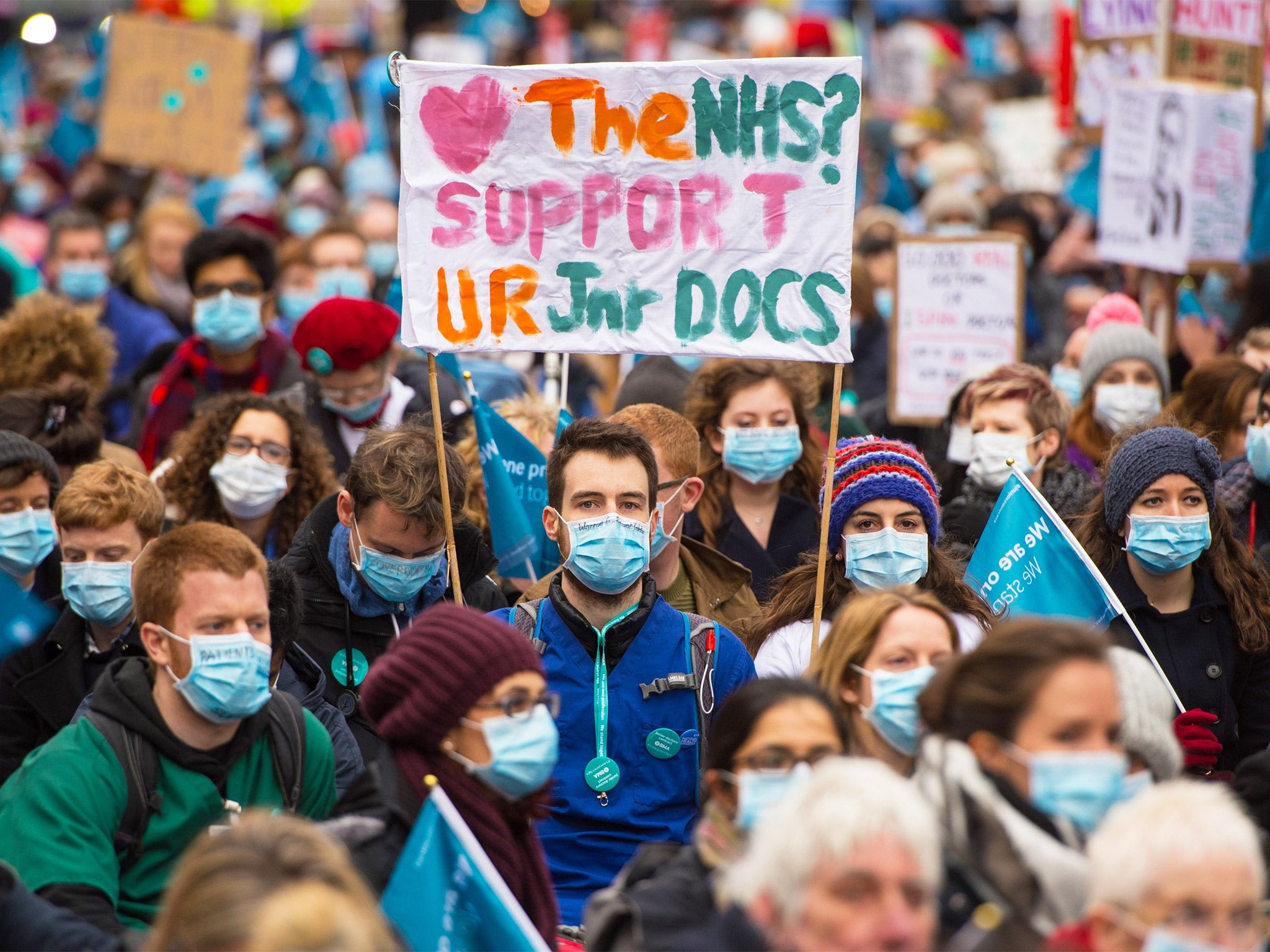Junior doctors: Jeremy Hunt could impose new contract on strikers after they reject Government's 'final' offer
The British Medical Association has rejected a last minute deal over Saturday working

Your support helps us to tell the story
From reproductive rights to climate change to Big Tech, The Independent is on the ground when the story is developing. Whether it's investigating the financials of Elon Musk's pro-Trump PAC or producing our latest documentary, 'The A Word', which shines a light on the American women fighting for reproductive rights, we know how important it is to parse out the facts from the messaging.
At such a critical moment in US history, we need reporters on the ground. Your donation allows us to keep sending journalists to speak to both sides of the story.
The Independent is trusted by Americans across the entire political spectrum. And unlike many other quality news outlets, we choose not to lock Americans out of our reporting and analysis with paywalls. We believe quality journalism should be available to everyone, paid for by those who can afford it.
Your support makes all the difference.Jeremy Hunt could impose a new contract on junior doctors after the deadline for them to accept the Government’s “best and final” offer passed.
The deadline to accept the Government’s contentious proposals on pay and weekend working passed over Wednesday night.
The British Medical Association rejected a last-minute deal over the last outstanding issue - Saturday working - to prevent the 24-hour strike on Wednesday.
The terms included a proposal offering junior doctors who regularly work weekends a premium rate for each Saturday they work.
Instead, in a letter to the Health Secretary, junior doctor's chairman Dr Johann Malawana proposed an alternative contract - based on an offer by the BMA in December - which would reduce the basic pay rise offered in exchange for better out-of-hours rates.
Junior doctors - which means every qualified doctor below consultant level - returned to work at 8am on Thursday after day on the picket line.
Mr Hunt will now be able to move closer towards imposing a new contract which junior doctors say will reduce their overall level of pay as evenings and Saturdays will no longer be considered “unsocial” hours.
Doctors say they are already working dangerous long hours - with some trusts reportedly making their medical staff work 100 hours a week.
Negotiations between the BMA and the Department of Health orchestrated by the mediation service Acas broke down over the issue of Saturday working in January.

Mr Hunt, backed by Downing Street, is expected to make a decision "within days" over whether to impose the new terms on England’s 45,000 junior doctors.
A No 10 source told the Guardian: "We think it is a very reasonable deal … As we’ve said all the way along, we are not going to remove that option from the table and give a veto to the BMA. We’ve certainly gone the extra mile in trying to get a deal and are very disappointed there is a further strike today."
Chris Hopson, the chief executive of NHS Providers, which represents over 90 per cent of NHS Trusts said Mr Hunt should bring the dispute "to a conclusion" and impose the contract.
He told BBC Radio 4's Today programme on Wednesday: "If the BMA won’t accept a fair and reasonable offer then, yes, it is legitimate and sensible for the Secretary of State to consider imposition."
An online survey on Tuesday found that 90 per cent of junior doctors would consider resigning if the contract was imposed on them.
Join our commenting forum
Join thought-provoking conversations, follow other Independent readers and see their replies
Comments